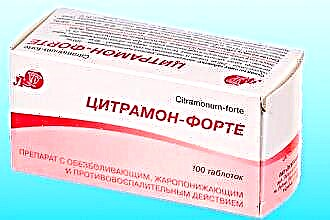Laryngitis is a common ENT disease among people of all ages, which occurs under the influence of physical and chemical factors: hypothermia, inhalation of poisonous, dirty or hot air. Laryngitis is caused by viruses and bacteria. Laryngitis can also occur in the form of complications of syphilis, tuberculosis, diphtheria.
During the period of illness, a person's voice becomes irritated, it is difficult for him to breathe through the nose, the mucous membrane of the throat dries up, and a dry cough appears. With severe wheezing, the voice disappears completely. Laryngitis lasts up to 7 days. Treatment is carried out at home.
Pros and cons
 Pharmacy is developing steadily, offering new drugs with high medicinal properties. Progressive antibacterial drugs easily perform functions that were previously reserved exclusively for antibiotics. Therefore, the question arises: is it necessary at all and what antibiotics for laryngitis? After all, their inappropriate use will not cure the patient and will have an additional chemical load on the body, reducing the level of immunity.
Pharmacy is developing steadily, offering new drugs with high medicinal properties. Progressive antibacterial drugs easily perform functions that were previously reserved exclusively for antibiotics. Therefore, the question arises: is it necessary at all and what antibiotics for laryngitis? After all, their inappropriate use will not cure the patient and will have an additional chemical load on the body, reducing the level of immunity.
To decide on this issue, you need to find out the root cause of the disease. Antibiotics for laryngitis in adults are not needed if the disease is caused by:
- an allergic pathological process (allergic laryngitis);
- working conditions (dusty rooms, public speaking);
- frequent belching with diseases of the gastrointestinal tract;
- violation of the protective functions of the body;
- fungal infectious processes.
Treatment of laryngitis with antibiotics is prescribed only by the otolaryngologist based on the examination of the patient. To determine an accurate diagnosis, a throat swab is taken from the patient. The results of bacteriological research will help determine the type of pathogen and its sensitivity to various antibiotics.
A high-quality, expensive antibiotic for laryngitis may be powerless, and a cheaper drug will give excellent results. Therefore, a throat swab is a mandatory test in the treatment of laryngitis. Purposeful examination is the key to successful treatment.
Antibiotic therapy for adults
When diagnosing laryngitis and determining the type of pathogen, the patient is prescribed antibiotic treatment. It consists of drugs with a wide spectrum of action of the penicillin, macrolide, cephalosporin or lincosamide series. The drugs have high antibacterial characteristics, stop the formation of bacterial cell structures and affect the organoid of microorganisms.
 Classic treatment regimen:
Classic treatment regimen:
- treatment period - a week;
- the medicine is taken once or twice a day;
- the dosage is determined individually.
Modern medicine offers a wide selection of drugs of different forms and contents of the active substance. The clinical activity of extencillin and retarpen is 3-4 weeks, which eliminates the need for frequent administration of the drug. Extensillin is administered intramuscularly only. The schedule of admission depends on the severity of the disease and is determined by the doctor. This drug is excluded if the patient is hypersensitive to components, bronchial asthma and hay fever.
Cephalosporin drugs are compatible with penicillins. They are characterized by high penetrating properties and are easily dispersed throughout the cells. Cephalosporins are administered intramuscularly or intravenously twice a day. The drugs in this group include Ceftriaxone, Cefotaxime, Medocef, etc.
Macrolides are a convincing alternative to cephalosporins - broad-spectrum antimicrobial drugs. The basis of drugs in this group is the production of special bacteria or lower fungi (actinomycetes). The most common representative of this group of drugs is "Erythromycin". It is taken orally in tablet or capsule form.
Patients who have a hard time tolerating cephalosporins and macrolides are prescribed lincosamides (natural products) or their semi-synthetic analogs - clindamycins.
 This group of drugs is effective against streptococcal and staphylococcal infections ("Lincomycin", "Dalatsin C", "Clindacin", etc.) "Lincomycin" should be drunk 60 minutes before a meal or two hours after, as a whole, with a sufficient amount of water ... In case of renal failure, special attention should be paid to the dosage of the drug.
This group of drugs is effective against streptococcal and staphylococcal infections ("Lincomycin", "Dalatsin C", "Clindacin", etc.) "Lincomycin" should be drunk 60 minutes before a meal or two hours after, as a whole, with a sufficient amount of water ... In case of renal failure, special attention should be paid to the dosage of the drug.
The body of each person is individual, so there is no single formula for the treatment of laryngitis. In each case, the doctor selects the drug based on the clinical picture of the patient.
Doses, dosage regimen and form of drug release are of great importance for successful treatment. An inappropriate medicine will delay recovery and cause significant damage to human health.
Treatment of laryngitis in children
 Children's colds are a very common occurrence. Timely diagnosis of laryngitis and competent treatment is a guarantee of a quick recovery and the health of the child as a whole. Strong antibiotics are contraindicated in children due to adverse reactions that negatively affect important internal organs. Antibiotics for laryngitis can be prescribed by a pediatrician or otolaryngologist.
Children's colds are a very common occurrence. Timely diagnosis of laryngitis and competent treatment is a guarantee of a quick recovery and the health of the child as a whole. Strong antibiotics are contraindicated in children due to adverse reactions that negatively affect important internal organs. Antibiotics for laryngitis can be prescribed by a pediatrician or otolaryngologist.
Children's colds require special attention. The younger the child, the more severe the disease progresses. It is extremely dangerous to delay treatment, waiting for the child's body to defeat the infection on its own. In children under 3 years of age, there is a risk of false croup - swelling of the mucous membrane with inflammation, which leads to suffocation. A high risk of developing laryngitis exists in children with chronic diseases of the nasopharynx and dental infections.
Antibiotics are not used for viral diseases due to their ineffectiveness; treatment is carried out exclusively with antiviral agents. If the disease is caused by pathogenic bacteria, it can and should be treated with antibiotics. For children, drugs of the penicillin series ("Augmentin", "Amoxiclav") are best suited. Perhaps the appointment of cephalosporins in the form of injections ("Ceftriaxone") or macrolides ("Clarithromycin", "Sumamed").
Antibiotics are given to children after laboratory confirmation of the presence of a bacterial infection. Correct treatment will alleviate the child's condition the very next day, and tangible results of the treatment will be noticeable for 2-3 days.
Children's laryngitis is treated with antibiotics when absolutely necessary. It is very important to get it diagnosed as early as possible. The neglected forms are dangerous with the transition to the chronic form, bronchitis and pneumonia.
It is important to pay special attention to the possible manifestations of allergies when taking antibacterial drugs. Itching and rash are symptoms in which you need to stop taking the drug and urgently inform your doctor in order to change the drug and correct therapy.
"Bioparox" - local drug
 For the treatment of laryngitis, there are local antibiotics in the form of a spray. They are effective, easy to use and do not affect the patient's internal organs. The most famous representative of this group of drugs is Bioparox. It is quite common in medical practice and has many positive reviews.
For the treatment of laryngitis, there are local antibiotics in the form of a spray. They are effective, easy to use and do not affect the patient's internal organs. The most famous representative of this group of drugs is Bioparox. It is quite common in medical practice and has many positive reviews.
Its mechanism of work is aimed at destroying staphylococcal, streptococcal infections, bacteria that multiply without oxygen, mycoplasmas and Candida fungi.Bioparox does not develop bacterial resistance, it has antibacterial, antifungal and anti-inflammatory effects. When used correctly, it can penetrate into hard-to-reach areas of the respiratory tract.
The function of the drug is to block the inflammatory process and the development of complications. Indications for use are laryngitis, pharyngitis, sinusitis, tracheitis and bronchitis.
Rehabilitation after antibiotic therapy
Laryngitis and antibiotics are usually inseparable. But this is not the most positive option for a person. The negative effects of antibacterial drugs affect the digestive organs, oral mucosa and other systems. Long-term use of antibiotics cleanses the body not only of disease-causing, but also of beneficial bacteria, provoking the development of dysbiosis and a decrease in the general level of immunity.
To restore the body after a powerful chemical attack, it is recommended:
 Healthy nutritious food with abundant use of fermented milk, meat, fish products. With dysbiosis, you should use raw plant foods with caution.
Healthy nutritious food with abundant use of fermented milk, meat, fish products. With dysbiosis, you should use raw plant foods with caution.- For digestive disorders, prompt treatment with astringent, herbal laxatives is necessary.
- Bifidobacteria and lactobacilli will help with intestinal dysbiosis.
- Women are recommended to be examined by a gynecologist to identify possible microflora disorders.
- Adding mineral water to the diet will help regenerate the gastrointestinal mucosa and cleanse the liver.
- Herbal teas will improve the functioning of the gastrointestinal tract.
Taking immunomodulatory drugs will also have a beneficial effect on the body's recovery after antibiotic therapy and an increase in the general level of immunity. They must be taken as prescribed by a doctor.

 Healthy nutritious food with abundant use of fermented milk, meat, fish products. With dysbiosis, you should use raw plant foods with caution.
Healthy nutritious food with abundant use of fermented milk, meat, fish products. With dysbiosis, you should use raw plant foods with caution.

